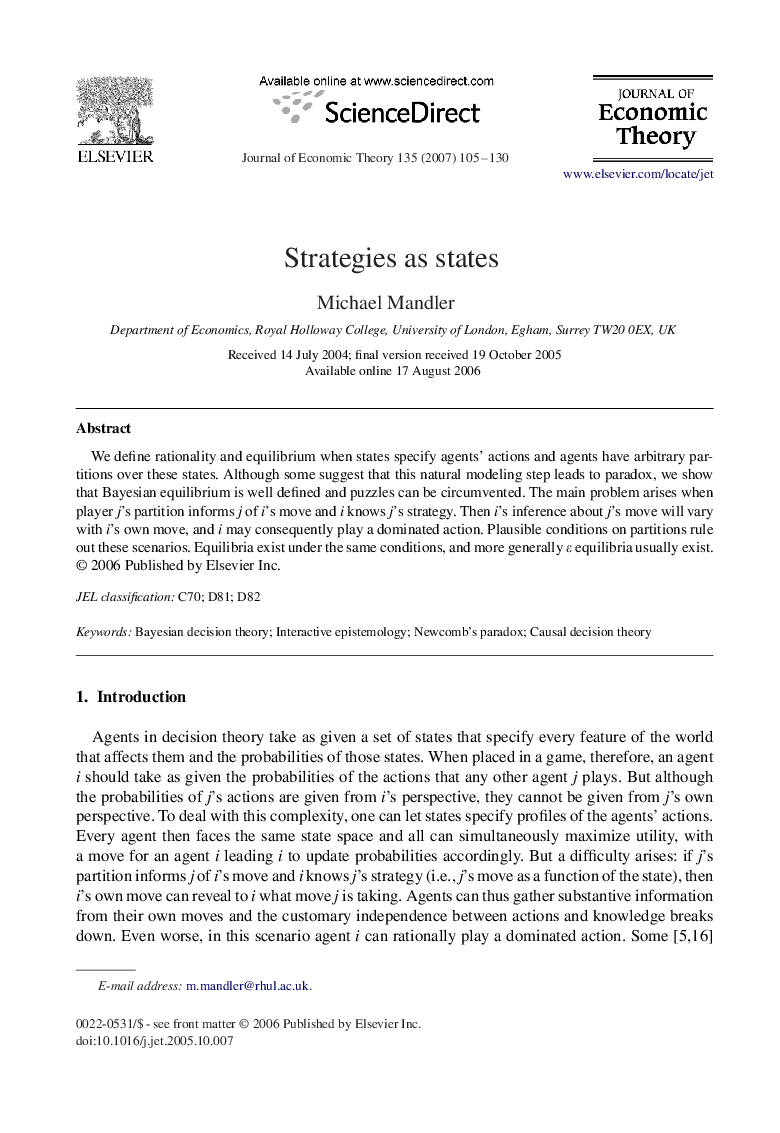| Article ID | Journal | Published Year | Pages | File Type |
|---|---|---|---|---|
| 957700 | Journal of Economic Theory | 2007 | 26 Pages |
Abstract
We define rationality and equilibrium when states specify agents’ actions and agents have arbitrary partitions over these states. Although some suggest that this natural modeling step leads to paradox, we show that Bayesian equilibrium is well defined and puzzles can be circumvented. The main problem arises when player j's partition informs j of i's move and i knows j's strategy. Then i's inference about j's move will vary with i's own move, and i may consequently play a dominated action. Plausible conditions on partitions rule out these scenarios. Equilibria exist under the same conditions, and more generally εε equilibria usually exist.
Keywords
Related Topics
Social Sciences and Humanities
Economics, Econometrics and Finance
Economics and Econometrics
Authors
Michael Mandler,
